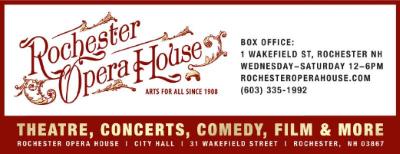CONCORD - New Hampshire's Attorney General joined a coalition of 27 states in a brief asking the U.S. Supreme Court to overrule -- or at least clarify -- a doctrine known as the Chevron deference, which allows unelected bureaucrats at federal agencies to impose their regulatory will on businesses with no bounds.
"For decades now unelected bureaucrats at federal agencies have been using a legal principle known as Chevron deference to operate like a fourth branch of the government," the brief joined by New Hampshire Attorney General John Formella reads.
"We now see courts deferring to federal agencies as they bend the law, grow their size, and expand their power over the everyday lives of Americans," Formella said. "As a result, New Hampshire small business owners and taxpayers have been seeing their personal rights directly impacted.
"While we do not think agencies should be eliminated or their expertise ignored, courts should no longer abdicate their job of interpreting the law. The U.S. Supreme Court should overturn Chevron."
The case, Loper Bright Enterprises v. Gina Raimondo, Secretary of Commerce, revolves around a regulation by the National Marine Fisheries Service that requires herring fishing boats to have an additional person on board to serve as a monitor, tracking compliance with federal regulation. The catch: The fishing companies must pay the monitor's salary, which would cost around $700 per day.
Facing down this impossible situation, the fisheries took the government to court. Applying Chevron deference, the lower courts held that the Magnuson-Stevens Act allowed the imposition, even though the statute did not expressly authorize it. The fisheries then asked the Supreme Court to take the case--either to "overrule Chevron, or at least clarify that statutory silence concerning controversial powers expressly but narrowly granted elsewhere in the statute does not constitute an ambiguity requiring deference to the agency."
Chevron deference ultimately allows courts to defer to a federal agency's interpretation of an ambiguous statute -- even if the court thinks that the agency's approach is not the most faithful way to read the statute. And because agencies only have the powers that Congress gives them by statute, the doctrine effectively allows agencies to expand their authority whenever statutes are even a little unclear.
The doctrine has been abused and manipulated to allow federal agencies to run amok, the coalition's brief explained.
By stacking the deck in the agencies' favor, the States lose "not only our authority to regulate in ways that matter most, but also our right to have the people we send to Congress make those calls if the federal government tries to take on these issues instead," according to the brief.
The New Hampshire Supreme Court has not adopted Chevron deference for State agencies.














